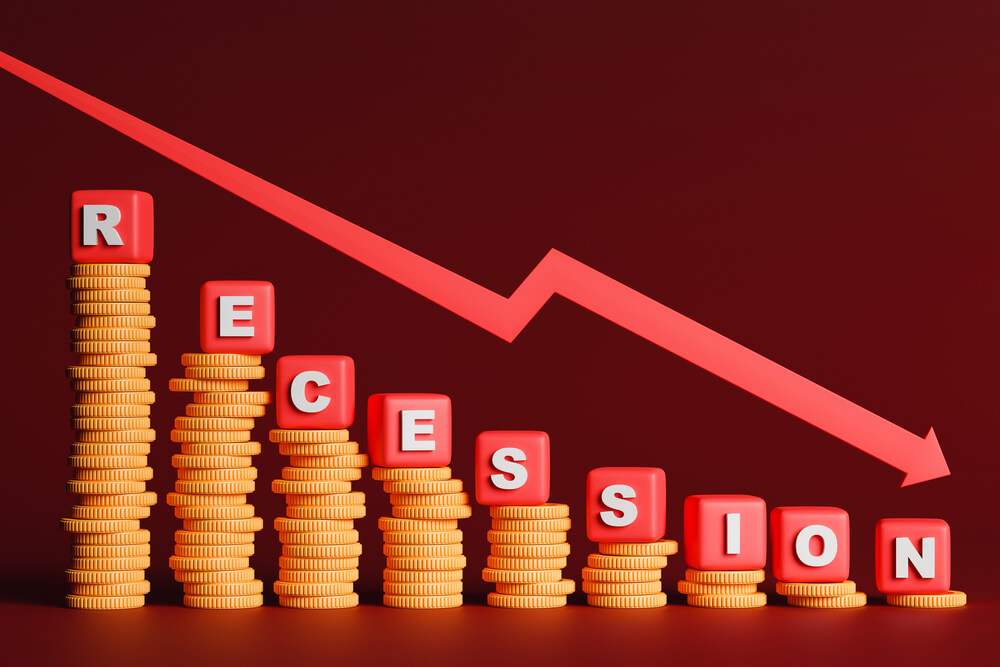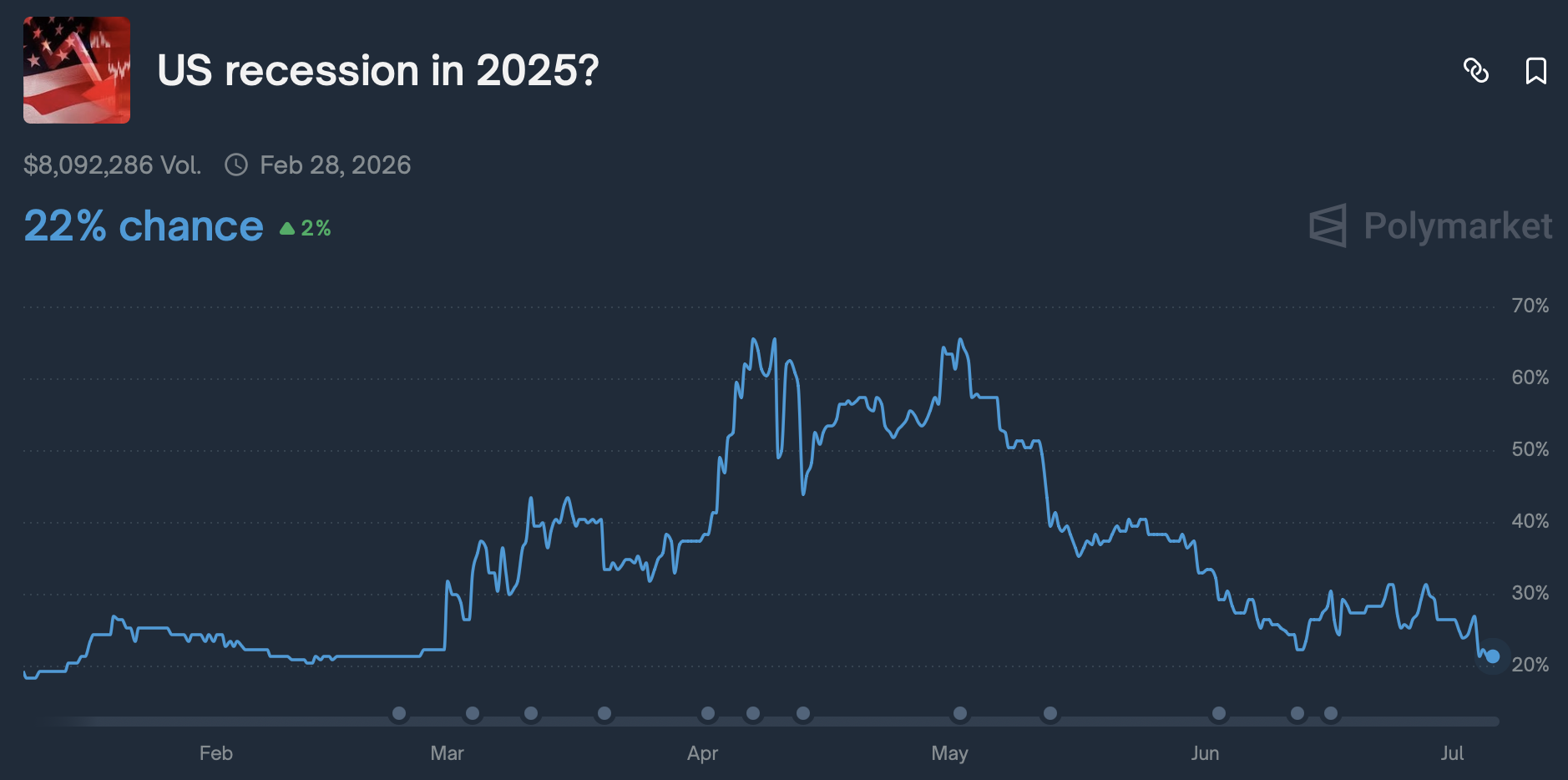Market Odds of a U.S. Recession in 2025 Drop in Half Since May
05.07.2025 18:30 2 min. read Kosta Gushterov
The likelihood of the United States entering a recession in 2025 has dropped significantly, according to the latest market data from prediction platform Polymarket, where recession odds have fallen to just 22%, marking a notable decline from earlier highs in April and May.
The chart, based on over $8 million in total volume, shows that recession fears surged between late March and mid-May, when the probability peaked above 60%. At the time, concerns over persistent inflation, weakening industrial output, and delays in Federal Reserve rate cuts fueled bearish sentiment. However, those expectations have since eased dramatically.
Since June, sentiment has steadily shifted, with traders now assigning a far lower probability to a full-scale economic contraction this year. The chance of a recession slid below 30% in mid-June, eventually reaching the current level of 22% as of early July.
Receding Risk Despite Lingering Macro Concerns
The declining odds reflect growing confidence in a soft-landing scenario, where the U.S. economy slows but avoids a technical recession. Strong labor market data, resilient consumer spending, and improving inflation prints have likely contributed to this optimism.

Still, the economic outlook remains mixed. Some sectors—particularly housing and manufacturing—have shown signs of strain. Yet the broader market appears to interpret recent policy shifts and earnings data as reasons for cautious optimism, rather than recession alarm.
A Volatile First Half of the Year
The prediction market chart reveals how quickly sentiment has shifted. From under 10% odds in early January, fears rose sharply in March and April, climbing past 60%, only to reverse through June and early July. This highlights the uncertainty that has defined the macroeconomic environment in 2025 so far.
With the next Federal Reserve rate decision and Q3 earnings season approaching, traders and investors will continue to watch closely for signs of either a recovery or renewed risk of contraction.
-
1
Binance Could Introduce Golden Visa Option for BNB Investors Inspired by TON
07.07.2025 8:00 1 min. read -
2
Weekly Recap: Key Shifts and Milestones Across the Crypto Ecosystem
06.07.2025 17:00 4 min. read -
3
Trump Imposes 50% Tariff on Brazil: Political Tensions and Censorship at the Center
10.07.2025 7:00 2 min. read -
4
Key Crypto Events to Watch in the Next Months
20.07.2025 22:00 2 min. read -
5
USA Imposes Tariffs on Multiple Countries: How the Crypto Market Could React
08.07.2025 8:30 2 min. read
Bitwise CIO: The Four-Year Crypto Cycle is Breaking Down
The classic four-year crypto market cycle—long driven by Bitcoin halvings and boom-bust investor behavior—is losing relevance, according to Bitwise CIO Matt Hougan.
Strategy to Raise Another $2.47 Billion for Bitcoin Acquisition
Strategy the company formerly known as MicroStrategy, has announced the pricing of a new $2.47 billion capital raise through its initial public offering of Variable Rate Series A Perpetual Stretch Preferred Stock (STRC).
AI Becomes Gen Z’s Secret Weapon for Crypto Trading
A new report from MEXC reveals a striking generational shift in crypto trading behavior: Gen Z traders are rapidly embracing AI tools as core components of their strategy.
3 key Reasons Behind Today’s Crypto Market Drop
The crypto market shed 1.02% in the past 24 hours, led by a sharp Bitcoin drop and fading altcoin interest.
-
1
Binance Could Introduce Golden Visa Option for BNB Investors Inspired by TON
07.07.2025 8:00 1 min. read -
2
Weekly Recap: Key Shifts and Milestones Across the Crypto Ecosystem
06.07.2025 17:00 4 min. read -
3
Trump Imposes 50% Tariff on Brazil: Political Tensions and Censorship at the Center
10.07.2025 7:00 2 min. read -
4
Key Crypto Events to Watch in the Next Months
20.07.2025 22:00 2 min. read -
5
USA Imposes Tariffs on Multiple Countries: How the Crypto Market Could React
08.07.2025 8:30 2 min. read


